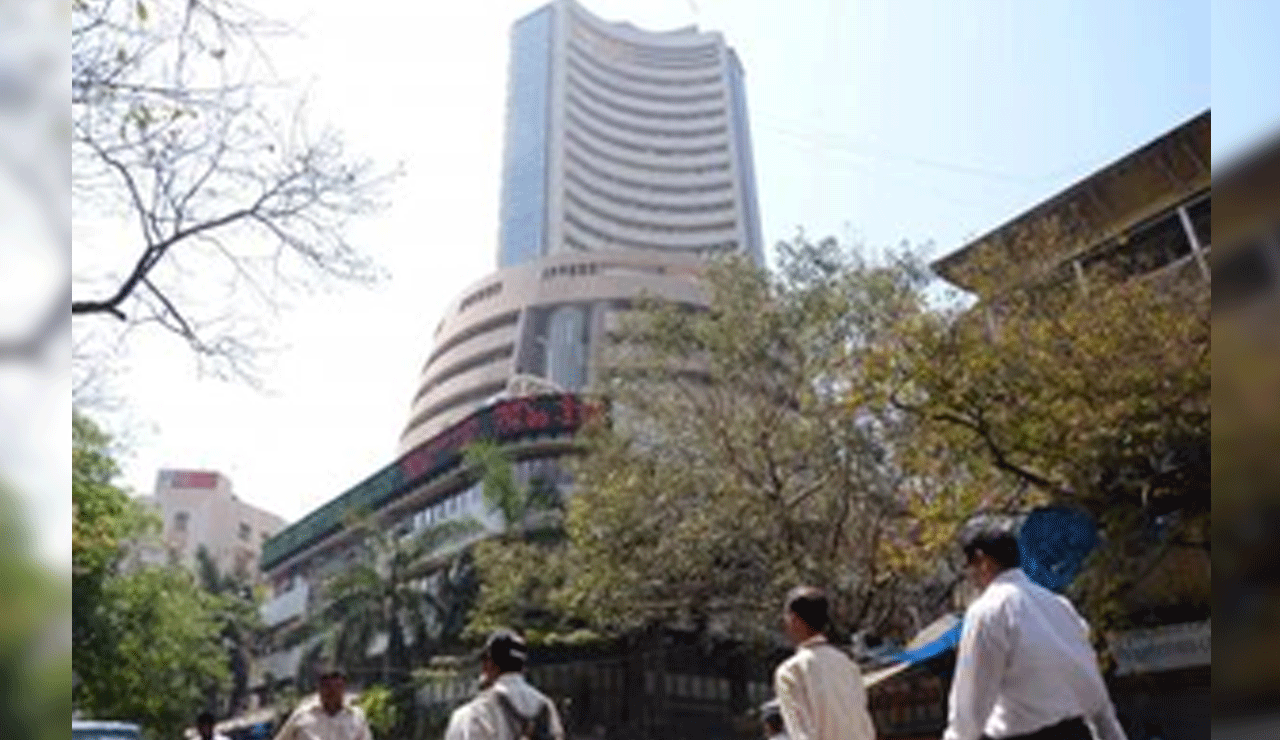Indian Stock Market Closes Lower as US Reciprocal Tariffs Come into Effect
The Indian stock market ended on a negative note on Wednesday, driven by weak global cues and concerns over the impact of new US trade tariffs. Despite the Reserve Bank of India’s (RBI) decision to cut the repo rate by 25 basis points to support economic growth, market sentiment remained subdued.

Mumbai: The Indian stock market ended on a negative note on Wednesday, driven by weak global cues and concerns over the impact of new US trade tariffs. Despite the Reserve Bank of India’s (RBI) decision to cut the repo rate by 25 basis points to support economic growth, market sentiment remained subdued.
Table of Contents
Indian Stock Market Reacts to US Tariffs and RBI Rate Cut
The RBI’s monetary policy committee (MPC) reduced the repo rate from 6.25% to 6%, signaling its intention to stimulate economic growth amid global uncertainties. Along with this rate cut, the RBI shifted its policy stance from ‘accommodative’ to ‘neutral.’
However, the market was unable to fully benefit from the rate reduction due to concerns over the renewed US tariffs. The Sensex ended lower, dropping by 379.93 points, or 0.51%, to close at 73,847.15. The Nifty also closed down, shedding 136.70 points or 0.61%, settling at 22,399.15.
Sectoral Performance and Key Stock Movers
Despite the overall market decline, some stocks managed to perform well. Nestle India led the Sensex pack with a gain of over 3%, followed by Hindustan Unilever which rose 2.52%. Titan also gained 1.66%. Other gainers included Adani Ports, Power Grid, Asian Paints, and ITC.
On the other hand, the top losers in the Sensex were State Bank of India (SBI), Tech Mahindra, Tata Steel, and Larsen and Toubro, with some stocks falling by as much as 3.4%. The broader market also witnessed a decline, with the BSE Midcap index falling 0.73%, while the Smallcap index dropped by 1.08%.
Impact of US Tariffs on Market Sentiment
The market sentiment was heavily influenced by the announcement of fresh US tariffs on China, which added to the ongoing global trade tensions. Vinod Nair of Geojit Investments Limited mentioned, “Global financial markets are witnessing renewed selling pressure following the enactment of reciprocal tariffs. In India, the RBI’s rate cut and the shift to a neutral stance are constructive, but they have done little to uplift overall market sentiment amid global recessionary fears.”
Also Read: India plans to seal trade deal with US by fall 2025: EAM Jaishankar
Ajit Mishra of Religare Broking Limited added, “The markets opened with a gap-down due to the new tariffs and remained range-bound for the rest of the session.”
What to Expect in the Coming Days
As the markets digest the impact of global trade policies and domestic economic moves, analysts caution that sentiment could remain subdued. The markets will be closed on April 10 for Mahavir Jayanti, providing some relief from the recent volatility.
Investors are advised to remain cautious as global uncertainty and domestic concerns continue to influence market movements.
